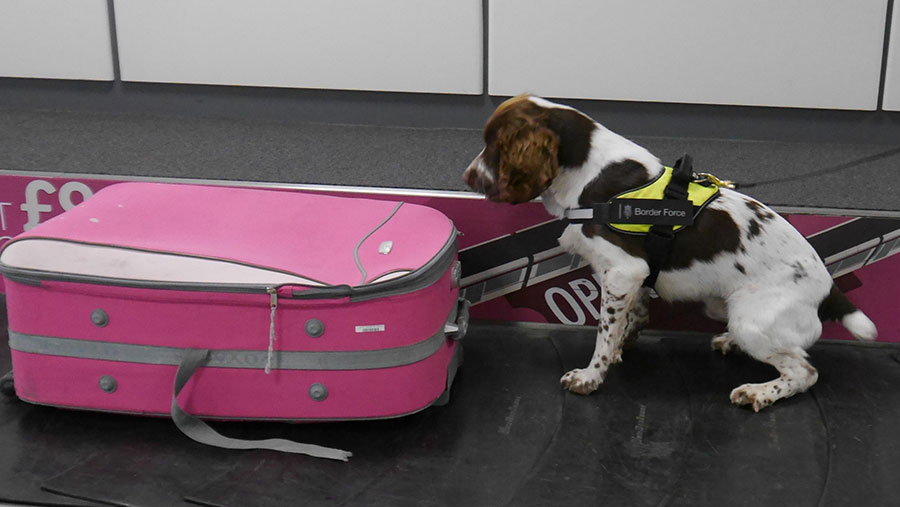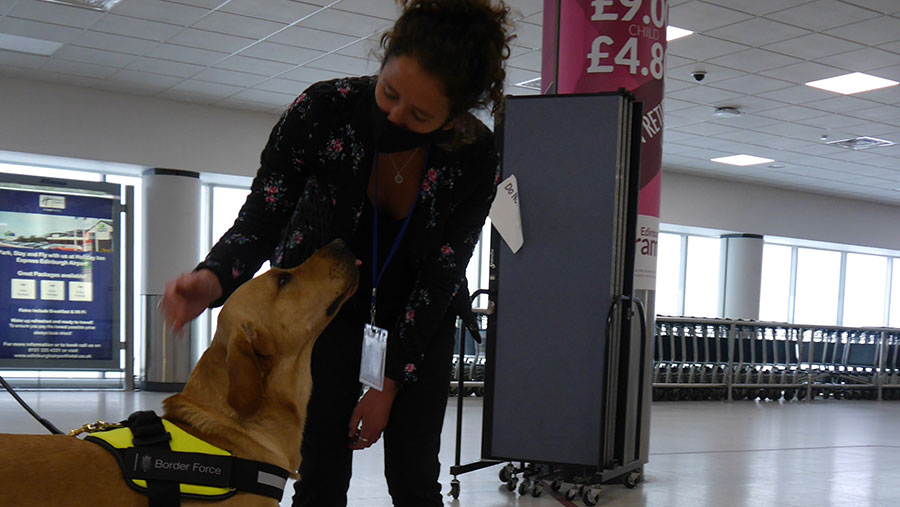Food sniffer dogs to help keep animal diseases out of UK
 © Scottish Government
© Scottish Government A new team of sniffer dogs will patrol airports, ports and parcel hubs in Scotland to help prevent animal diseases such as African swine fever (ASF) and foot-and-mouth entering the UK.
The Scottish government has funded the new Border Force canine unit which has been specially trained to sniff out products of animal origin (PoAO).
See also: Analysis: How good are foot-and-mouth controls 20 years on?
Border Force North data revealed that in 2020 more than a tonne of PoAO was seized at ports and airports from people arriving in Scotland.
Rural affairs secretary Mairi Gougeon said: “Monthly seizure data provided by Border Force North helps us ascertain where PoAO originate from and helps us identify periods where seizures are above average.
“It’s important for people to remember when travelling that they should not bring any meat or meat products with them when returning to the UK as they could carry diseases such as African swine fever.
“It is vital to keep the UK’s pig sector safe and free from this devastating disease.”
Financial cost
The threat of exotic diseases entering the UK remains a big concern for agriculture.
Experts fear an ASF outbreak could cost the UK pig sector hundreds of millions of pounds.
The disease has led to the death of pigs around the world and can be spread through imports of pork and pork products.

Mairi Gougeon at Edinburgh Airport with one of the specially trained dogs © Scottish Government
Foot-and-mouth is also known to circulate in livestock in Africa, the Middle East and Asia, and in some parts of South America.
At the time of the foot-and-mouth crisis in 2001, illegal imports of bushmeat from West Africa were cited as one possible source of the disease reaching these shores.
Marie Craig, assistant director for Border Force Scotland, said: “Border Force detector dogs protect the UK from over a tonne of potentially harmful products that could spread disease each year.
“The deployment of specially trained detector dogs across our ports in Scotland will further improve our ability to protect the public from the importation of exotic diseases.”
